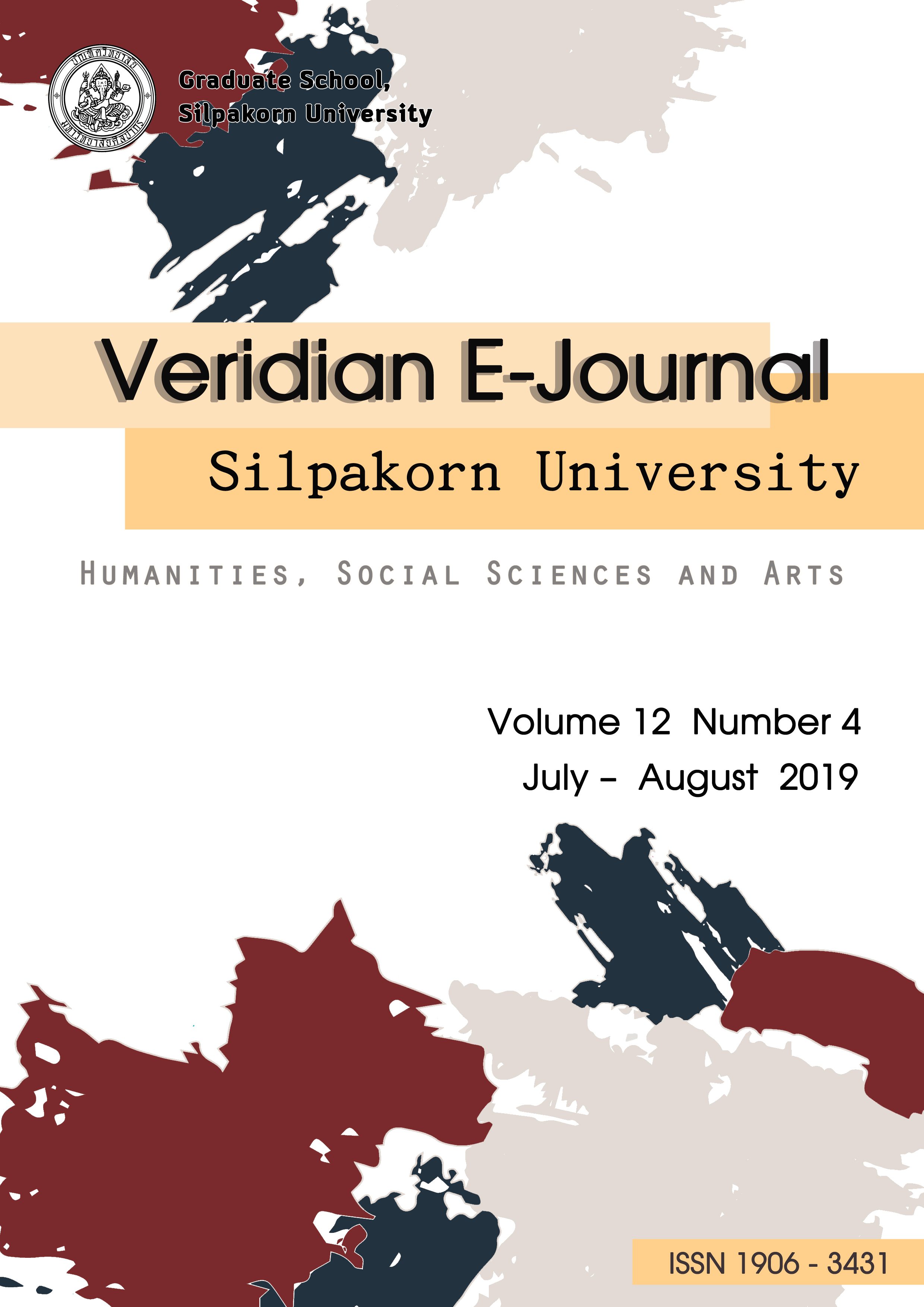ผลกระทบของการสนับสนุนทางการศึกษา การสร้างสัมพันธภาพ และความเชื่อมั่นในตนเองต่อความตั้งใจในการเริ่มต้นสร้างธุรกิจใหม่โดยใช้เทคโนโลยีดิจิทัลของนักศึกษาทางด้านการบริหารธุรกิจ (The Effects of Educational Support, Relational Support, and Self-Confidence on Business Student’s Career Intention to Start a New Digital Technology Business)
Main Article Content
บทคัดย่อ
การวิจัยครั้งนี้มีวัตถุประสงค์เพื่อศึกษาถึง 1) เพื่อศึกษาถึงผลกระทบของปัจจัยด้านการสนับสนุนทางการศึกษาที่ส่งผลต่อการสร้างสัมพันธภาพ 2) ผลกระทบของปัจจัยด้านการสนับสนุนทางการศึกษา และการสร้างสัมพันธภาพที่ส่งผลต่อความเชื่อมั่นในตนเอง และ 3) ผลกระทบของปัจจัยด้านการสนับสนุนทางการศึกษา การสร้างสัมพันธภาพ และความเชื่อมั่นในตนเองที่ส่งผลต่อความตั้งใจในการเริ่มต้นสร้างธุรกิจใหม่โดยใช้เทคโนโลยีดิจิทัลของนักศึกษาทางด้านบริหารธุรกิจ โดยใช้ระเบียบวิธีวิจัยเชิงปริมาณทำการวิจัยเชิงประจักษ์ และใช้แบบสอบถามเป็นเครื่องมือในการเก็บรวบรวมข้อมูลจากนักศึกษาระดับปริญญาตรีด้านการบริหารธุรกิจ จำนวน 200 คน โดยใช้วิธีสุ่มตัวอย่างแบบสะดวก จากนั้นทำการวิเคราะห์โมเดลการวัดและวิเคราะห์โมเดลสมการโครงสร้างก่อนการทำการตรวจสอบสมมติฐานด้วยวิธีการวิเคราะห์ข้อมูลสถิติแบบเส้นทางกำลังสองน้อยที่สุดบางส่วน(Partial Least Square: PLS) ด้วยโปรแกรมสำเร็จรูป SmartPLS
ผลการวิจัยพบว่า การสนับสนุนทางการศึกษาเป็นปัจจัยที่ส่งผลกระทบเชิงบวกต่อการสร้างสัมพันธภาพ โดยการสนับสนุนทางการศึกษายังเป็นปัจจัยที่สำคัญที่ส่งผลเชิงบวกต่อความเชื่อมั่นในตนเองมากที่สุด รองลงมาคือ การสร้างสัมพันธภาพ ตามลำดับ นอกจากนี้ ความเชื่อมั่นในตนเองยังเป็นปัจจัยที่สำคัญที่สุดที่ส่งผลกระทบเชิงบวกความตั้งใจในการเริ่มต้นสร้างธุรกิจใหม่โดยใช้เทคโนโลยีดิจิทัลของนักศึกษาทางด้านการบริหารธุรกิจ รองลงมาคือ การสนับสนุนทางการศึกษา และการสร้างสัมพันธภาพ ตามลำดับ โดยการสนับสนุนทางการศึกษามีอิทธิพลทางตรงต่อการสร้างสัมพันธภาพ ความเชื่อมั่นในตนเอง และความตั้งใจในการเริ่มต้นสร้างธุรกิจใหม่โดยใช้เทคโนโลยีดิจิทัลของนักศึกษาทางด้านการบริหารธุรกิจ และมียังอิทธิพลทางอ้อมต่อความตั้งใจในการเริ่มต้นสร้างธุรกิจใหม่โดยใช้เทคโนโลยีดิจิทัลของนักศึกษาทางด้านบริหารธุรกิจ และความเชื่อมั่นในตนเอง ในขณะที่การสร้างสัมพันธภาพมีอิทธิพลทางตรงต่อความเชื่อมั่นในตนเอง และความตั้งใจในการเริ่มต้นสร้างธุรกิจใหม่โดยใช้เทคโนโลยีดิจิทัลของนักศึกษาทางด้านบริหารธุรกิจ และยังมีอิทธิพลทางอ้อมต่อความตั้งใจในการเริ่มต้นสร้างธุรกิจใหม่โดยใช้เทคโนโลยีดิจิทัลของนักศึกษาทางด้านบริหารธุรกิจ นอกจากนี้ ความเชื่อมั่นในตนเองยังมีอิทธิพลทางตรงต่อความตั้งใจในการเริ่มต้นสร้างธุรกิจใหม่โดยใช้เทคโนโลยีดิจิทัลของนักศึกษาทางด้านบริหารธุรกิจ โมเดลสมการโครงสร้างสามารถอธิบายผลของความตั้งใจในการเริ่มต้นสร้างธุรกิจใหม่โดยใช้เทคโนโลยีดิจิทัลของนักศึกษาทางด้านการบริหารธุรกิจได้ร้อยละ (R2 = 0.735, R2adj = 0.731 ) จากผลการวิจัยเป็นประโยชน์ต่อสถาบันการศึกษา ศูนย์บ่มเพาะธุรกิจ และผู้มีส่วนเกี่ยวข้องในการเพิ่มระดับความตั้งใจในการเริ่มต้นสร้างธุรกิจใหม่โดยใช้เทคโนโลยีดิจิทัลของนักศึกษาทางด้านบริหารธุรกิจ โดยผ่านความเชื่อมั่นในตนเองที่เกิดจากการสนับสนุนทางการศึกษา และการสร้างสัมพันธภาพ

